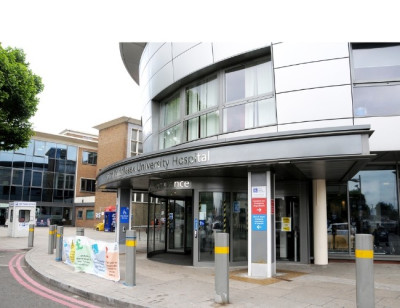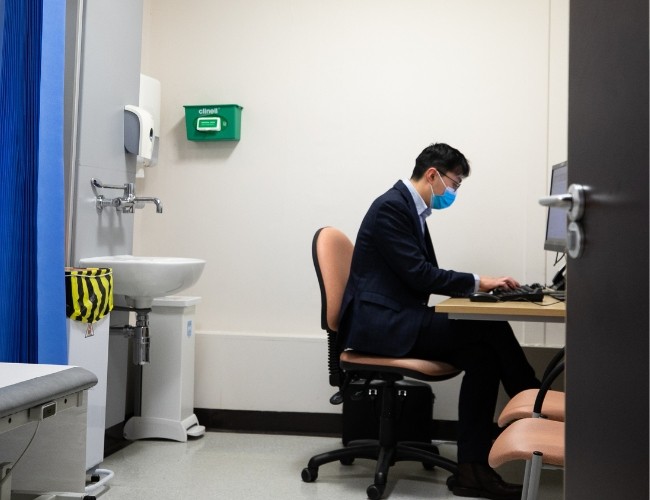Urology refers to the medical treatment of problems with the urinary and male reproductive systems.
Our team of urologists at Barnet Hospital, Chase Farm Hospital, North Middlesex University Hospital and the Royal Free Hospital specialise in treating kidney, bladder and prostate problems, as well as conditions that affect the ureter, urethra, penis and testes. For example, urology patients may be treated for a urine infection, incontinence or urinary tract cancers.
We also work with specialists from across the trust to provide a patient-centred, multi-disciplinary approach to care.
We have a dedicated team of urology nurses and consultants who are experts in their field. We offer urology clinics and surgery across our three hospitals to provide care for our patients closer to home.
How to prepare for your visit
For some conditions we will still require seeing you in person to offer additional support, perform an examination or undertake a procedure.
Urgent procedures and treatments including cancer diagnostic services are available but in accordance with strict infection control guidelines to ensure the safety of everyone. A protected zone has been set up for planned procedures where both patients and staff are routinely screened and tested for Covid-19 and are confined within the designated area. Please follow any infection control and prevention measures given to you by our team during the pandemic.
Please be aware for many of our Urological appointments you may be required to provide a urine sample on attendance. For some specialist clinics and treatments, you may be required to limit your water intake prior to your appointment. For ultrasound scans and some other Radiological investigations, you may be required to hold urine in your bladder. Further information will be provided to you if required in your appointment letter or information leaflet.
All GP referrals should be submitted through the NHS e-Referral Service (eRS).
For patients referred on a suspected cancer pathway, appointments can be booked directly by the GP or patient through eRS. It is important the patient is available within 14 days of their referral.
Patients may receive multiple appointments including a scan, blood test and a telephone or face-to-face appointment. It is vital all these appointments are attended. If you are not sure, please contact the relevant team.
For patients who have been referred for non-cancer urology issues, you will be referred by your GP and your referral will be reviewed by our Clinical Assessment Service.
You may receive a letter about this appointment, please do not attend or expect a telephone call. This appointment is for a clinician to review your referral only.
During the review, the clinician will either offer advice for to your GP to manage your condition or refer you for investigations. You will receive the outcome of this review by letter.
If further investigations are required, you should expect appointment letters in the following weeks, which you should attend.
We are aware we currently have a long wait for routine first appointments. We are working hard to ensure patients are being seen in order of clinical priority and length of wait. If your condition gets worse whilst awaiting your appointment, please attend your GP and seek advice first.
Please note, if you are unable to attend an appointment you must let us know as soon as possible. Failure to attend your appointment may result in you being discharged back to your GP.
North Middlesex University Hospital
Patients can be referred using e-RS. For benign conditions please refer via the
general urology clinic.
For 2ww appointments please use either Haematuria One Stop clinic or Prostate One Stop Clinic for patients fitting these criteria only. For other 2ww patients not fitting into these specialised clinics (e.g. suspected renal, penile or testicular cancer) please use the 2ww General clinic slots allocated.
We do not accept emailed referrals or self-referrals. For appointment or referral queries please contact us.
 Translate
Translate





